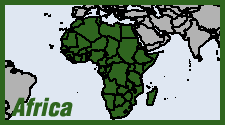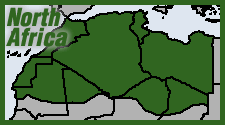 Before the 1988 GMC Thomas Built school bus was dubbed the "Cannabus" and made over with its marijuana-themed paint job, it was a red ski resort shuttle bus until two guys from North Carolina bought the bus in 2012 and set out on the "Green Bus Tour for Marijuana Legalization." The pair toured the East Coast for approximately nine weeks before certain events kept them from continuing, and the CannaBus went up for sale on eBay.
Before the 1988 GMC Thomas Built school bus was dubbed the "Cannabus" and made over with its marijuana-themed paint job, it was a red ski resort shuttle bus until two guys from North Carolina bought the bus in 2012 and set out on the "Green Bus Tour for Marijuana Legalization." The pair toured the East Coast for approximately nine weeks before certain events kept them from continuing, and the CannaBus went up for sale on eBay.

 The arch-puritanical rulers of Saudi Arabia can't be happy about this. A Saudi border patrol ship intercepted a boat loaded with a half-ton of hashish bound for the kingdom's shores on the Persian Gulf Sept. 6—after an exchange of fire with the crew, in which two of the smugglers were shot, one fatally. The three surviving traffickers, identified as Iranian, were taken into custody, along with 552 kilograms of hashish. (
The arch-puritanical rulers of Saudi Arabia can't be happy about this. A Saudi border patrol ship intercepted a boat loaded with a half-ton of hashish bound for the kingdom's shores on the Persian Gulf Sept. 6—after an exchange of fire with the crew, in which two of the smugglers were shot, one fatally. The three surviving traffickers, identified as Iranian, were taken into custody, along with 552 kilograms of hashish. ( The French navy announced Sept. 12 that it had made a record cannabis seizure in the Mediterranean sea after intercepting a ship carrying 20 tons, with an estimated value of 50 million euros. "To the best of our knowledge it is the biggest seizure by the French state in the Mediterranean," vice-admiral Yves Joly told reporters in Toulon. The Tanzania-flagged Luna-S was boarded by French naval forces in international waters between Italy and Algeria. The eight-member crew, tentatively identified as Syrians, set the cannabis on fire as the French patrol ship approached, and dramatic photos were released of smoke rising from the deck. The Luna-S had left Morocco days earlier. Tanzanian authorities say they are investigating the ship, which was registered to a company in the Marshall Islands.
The French navy announced Sept. 12 that it had made a record cannabis seizure in the Mediterranean sea after intercepting a ship carrying 20 tons, with an estimated value of 50 million euros. "To the best of our knowledge it is the biggest seizure by the French state in the Mediterranean," vice-admiral Yves Joly told reporters in Toulon. The Tanzania-flagged Luna-S was boarded by French naval forces in international waters between Italy and Algeria. The eight-member crew, tentatively identified as Syrians, set the cannabis on fire as the French patrol ship approached, and dramatic photos were released of smoke rising from the deck. The Luna-S had left Morocco days earlier. Tanzanian authorities say they are investigating the ship, which was registered to a company in the Marshall Islands.  Deputy Attorney General James Cole, the same who authored a
Deputy Attorney General James Cole, the same who authored a  Security forces of the Sahrawi Arab Democratic Republic on Aug. 19 announced the seizure of 300 kilograms of cannabis in operations along the security wall built by the Moroccan military, which divides Morocco-occupied Western Sahara on the western side from the interior desert controlled by the Sahrawi rebels. In a statement to the press, the Saharawi National Gendarmerie Directorate said their patrols "have arrested three groups [that] were smuggling drugs from Morocco to northern Mali via the Saharawi liberated territory." The statement said five four-wheel-drive vehicles had been seized as well. "These groups are now at the hand of Saharawi justice," added the statement.
Security forces of the Sahrawi Arab Democratic Republic on Aug. 19 announced the seizure of 300 kilograms of cannabis in operations along the security wall built by the Moroccan military, which divides Morocco-occupied Western Sahara on the western side from the interior desert controlled by the Sahrawi rebels. In a statement to the press, the Saharawi National Gendarmerie Directorate said their patrols "have arrested three groups [that] were smuggling drugs from Morocco to northern Mali via the Saharawi liberated territory." The statement said five four-wheel-drive vehicles had been seized as well. "These groups are now at the hand of Saharawi justice," added the statement. Cannabis is a $1.65 billion industry in New York City, according to a report released Aug. 14 by comptroller and mayoral hopeful
Cannabis is a $1.65 billion industry in New York City, according to a report released Aug. 14 by comptroller and mayoral hopeful  US Attorney General
US Attorney General  Mexico's most notorious kingpin,
Mexico's most notorious kingpin, 





Recent comments
6 days 14 hours ago
6 days 21 hours ago
4 weeks 14 hours ago
4 weeks 6 days ago
9 weeks 4 hours ago
12 weeks 5 days ago
16 weeks 5 days ago
17 weeks 4 days ago
27 weeks 4 days ago
31 weeks 4 days ago